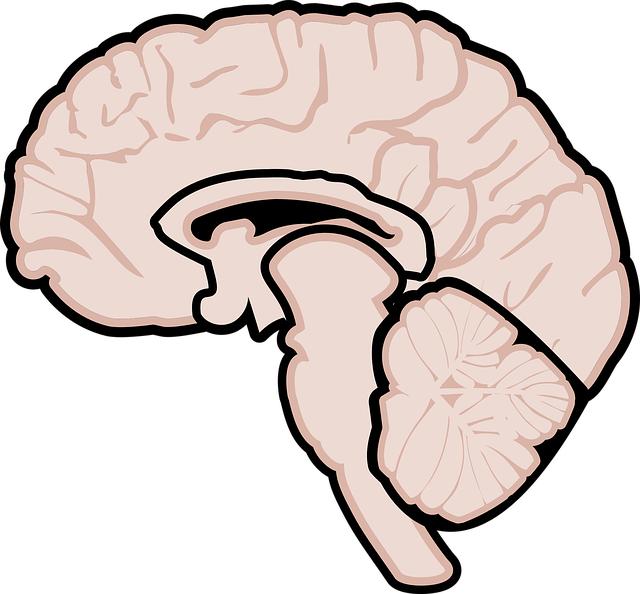
Multiple sclerosis (MS) is a chronic disease that affects the central nervous system, including the brain and spinal cord. It occurs when the immune system attacks the protective covering of the nerves, leading to communication problems between the brain and the rest of the body. MS can cause a wide range of symptoms that vary from person to person, and can change over time.
Recognizing the symptoms of multiple sclerosis is important for early diagnosis and treatment. In this article, we will explore the common signs and symptoms of MS, and how they can impact a person’s daily life.
1. Fatigue
One of the most common symptoms of multiple sclerosis is fatigue. This is not just regular tiredness, but an overwhelming feeling of exhaustion that can significantly impact a person’s daily activities. Fatigue in MS is often unrelieved by rest and can be debilitating, affecting the ability to work, exercise, and engage in social activities.
Individuals with MS may find that their fatigue worsens as the day goes on, and it may be accompanied by physical weakness and mental exhaustion. Managing fatigue in MS often involves a combination of medication, lifestyle changes, and energy conservation techniques.
2. Numbness and Tingling
Numbness or tingling sensations in the limbs, face, or body are also common symptoms of multiple sclerosis. This can range from a mild tingling sensation to complete numbness, and may come and go or persist for extended periods of time. Numbness and tingling in MS is caused by damage to the nerves, leading to disrupted communication between the brain and the body.
These sensory symptoms can be uncomfortable and can impact a person’s ability to perform everyday tasks. They can also affect balance and coordination, making it important for individuals with MS to be cautious when moving around to avoid falls and injuries.
3. Vision Problems
MS can affect the optic nerve, leading to a variety of vision problems. Blurred or double vision, eye pain, and difficulty focusing are common symptoms experienced by individuals with MS. Optic neuritis, inflammation of the optic nerve, is a common visual complication of MS and can cause temporary or permanent vision loss.
It is important for individuals with MS to have regular eye exams to monitor any changes in vision, and to discuss any visual symptoms with their healthcare provider.
4. Muscle Spasms and Weakness
Problems with muscle control and coordination are common in multiple sclerosis. Muscle spasms, stiffness, and weakness can occur, making it difficult to move or perform everyday tasks. Spasticity, or involuntary muscle stiffness and spasms, can be particularly bothersome and can interfere with mobility and comfort.
Physical therapy, medications, and assistive devices can help manage muscle symptoms in MS and improve mobility and quality of life.
5. Cognitive Changes
MS can also affect cognitive function, leading to problems with memory, concentration, and problem-solving. Individuals with MS may experience difficulty with multitasking, finding the right words, and processing information. Cognitive changes can significantly impact a person’s ability to work, engage in social activities, and perform everyday tasks independently.
It is important for individuals with MS and their caregivers to be aware of potential cognitive changes and to seek support from healthcare providers and support groups to manage these symptoms effectively.
6. Bladder and Bowel Dysfunction
Bladder and bowel problems are common in multiple sclerosis and can range from mild to severe. Individuals with MS may experience urinary urgency, frequency, or incontinence, as well as constipation or diarrhea. These symptoms can be embarrassing and impact a person’s social life and self-esteem.
Effective management of bladder and bowel symptoms in MS involves dietary changes, pelvic floor exercises, medications, and possibly the use of catheters or other assistive devices.
7. Emotional Changes
MS can also affect a person’s emotional well-being, leading to mood swings, depression, anxiety, and irritability. Dealing with a chronic illness, managing symptoms, and facing uncertainty about the future can be emotionally challenging for individuals with MS and their loved ones.
Seeking support from mental health professionals, participating in support groups, and engaging in stress-reducing activities can help individuals with MS cope with emotional changes effectively.
8. Pain
Many individuals with multiple sclerosis experience pain, including nerve pain, muscle pain, and musculoskeletal pain. Pain can be sharp, stabbing, or aching, and can vary in intensity and duration. Pain in MS can be caused by nerve damage, muscle stiffness, or other complications of the disease.
Effective pain management in MS often involves a combination of medications, physical therapy, relaxation techniques, and lifestyle modifications.
9. Speech and Swallowing Difficulties
MS can affect the muscles and nerves involved in speech and swallowing, leading to problems with articulation, voice control, and swallowing coordination. Speech and swallowing difficulties can be frustrating and impact a person’s ability to communicate and eat safely.
Speech therapy, dietary modifications, and assistive devices can help individuals with MS manage speech and swallowing difficulties and improve their quality of life.
10. Heat Sensitivity
Many individuals with MS are sensitive to heat and may experience a temporary worsening of symptoms when exposed to high temperatures. This can manifest as fatigue, numbness, weakness, and other symptoms. Heat sensitivity can be especially challenging during hot weather or when engaging in physical activity.
Avoiding excessive heat, staying cool, and using cooling devices can help individuals with MS manage heat sensitivity and reduce the impact of this symptom on their daily activities.

















